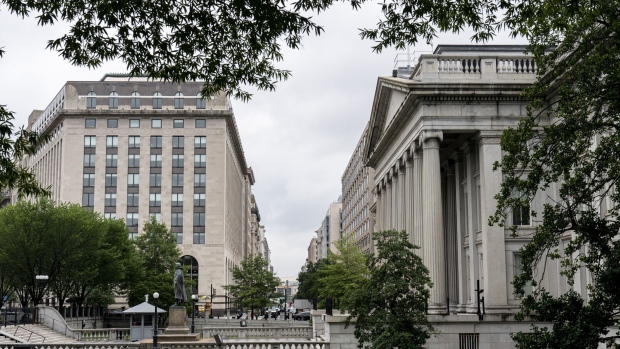Sep 27, 2021
Democrats Agree to $10,000 Limit to Report Bank Accounts to IRS
, Bloomberg News

(Bloomberg) -- Democrats in Congress are considering plan that would require banks to report accounts with least $10,000 to the Internal Revenue Service, sharply increasing the $600 threshold that had been recommended by the Treasury Department, according to a key lawmaker.
“We’ve made some significant movement on the number,” House Ways and Means Committee Chairman Richard Neal said Monday. The Massachusetts Democrat said he backed the $10,000 figure from “day one” of considering the proposal, and that Senate Finance Committee Chairman Ron Wyden also supports it.
The narrowing of President Joe Biden’s proposal to require require financial institutions to report account flows the IRS responds to concerns that the plan would give federal tax collectors information used to single out taxpayers over small amounts of unreported income. Democrats are considering adding the plan to an up-to $3.5 trillion social spending bill to offset some of the costs.
“The idea is to build in guardrails so that people at the lower end are not targeted. This is about people at the upper end,” Neal said in an interview. “We do think we can raise the level of compliance from everybody with more procedural requirements.”
Neal said congressional staff was looking at ways to “ameliorate legitimate concerns” among lower-income taxpayers that the data could be used to target them. The idea is one of dozens of tax proposals that Democrats are currently considering to finance a bill to invest in climate programs, child care and education.
Lobbying Effort
The bank-reporting proposal to give the IRS more visibility into the deposits and outflows of many account owners has run into heavy lobbying from banks, along with objections from Republicans and some Democrats who are concerned that it would give the agency too much of taxpayers’ personal data. No such reporting threshold exists now.
A more narrowly targeted proposal could help win over support from some hesitant Democrats. The idea was excluded from an initial House version of the tax bill partly because lawmakers couldn’t reach agreement on the measure. The plan could be added at several points as the legislation makes it way through the House and Senate in the coming weeks.
The original White House proposal could raise as much as $463 billion over a decade, according to a Treasury Department estimate. An estimate for a $10,000 threshold has not been published.
©2021 Bloomberg L.P.






